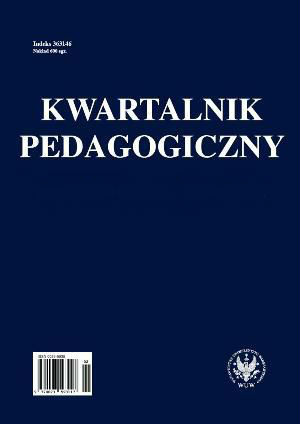DWA PARADYGMATY MĘSKOŚCI W KULTURZE WSPÓŁCZESNEJ
TWO PARADIGMAS OF MASCULINITY IN CONTEMPORARY CULTURE
Author(s): Krzysztof ArcimowiczSubject(s): Education
Published by: Wydawnictwa Uniwersytetu Warszawskiego
Keywords: męskość; paradygmat; paradygmat męskości; cechy płciowe; role płciowe; osobowość; psychika
Summary/Abstract: The paper reads about two competing paradigms of masculinity in the con-temporary culture. The first paradigm that can be defined as a traditional model of masculinity springs from both the Judeo-Christian tradition and modern science (F. Bacon, I. Newton, R. Descartes). The paradigm not only formulates masculinity as the domination of males over naturę, women and children and opposes masculin¬ity to feminity, but also lays an emphasis on the diffrent specialization between males and females in the exactly specified spheres of activity. Within the scope of this conception, there arę functioning stereotyped patterns of masculinity, e.g. a distant breadwinner. Ideas spread by S. Freud and J. Lacan were also contributive to estabilishment of this paradigm. The new paradigm that is mostly bound up with postmodern thought comprises many different and discursive models of masculinity. Generally, they perceive the differeneces between members of the opposite sex, but they do not try to mąkę for them any assessment or judgement. They emphasize that every mań is entitled to selfactualization. There is morę and morę talk of partnership in the relation between mań and woman, which makes a new trait for masculinity compared to the traditional paradigm. This paradigm offers new forms of masculine behavior, e.g. an affectionate and sensitive father. Modern critical thought gives a voice and entitlement to speak to the subjects of symbolic minorities, those that have been defined as "diffrent" (e.g. women, homosexuals, etc.).
Journal: Kwartalnik Pedagogiczny
- Issue Year: 173/1998
- Issue No: 1-2
- Page Range: 37-58
- Page Count: 22
- Language: Polish
- Content File-PDF

